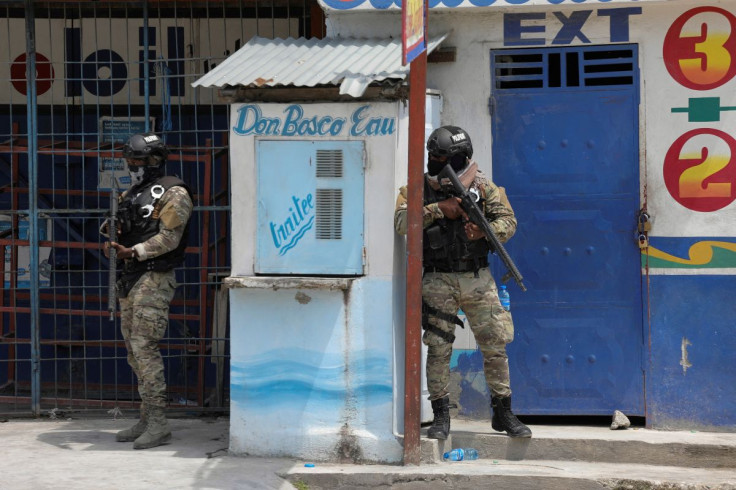
Haitian Prime Minister Ariel Henry announced late Monday that he will step down from his role to facilitate the fight against armed gangs, which control large swaths of the capital, Port-au-Prince, and have plunged the country into chaos.
Henry said he will do so once a transitional presidential council is created, but a timeline for that is still unclear, as well as who will be included in the group tasked with dealing with the country's security crisis.
Caribbean leaders gathered in Jamaica at a Caricom emergency conference -and joined by Secretary of State Antony Blinken- to continue pressing for a transitional government. After getting Henry's concession, Guyana President Irfaan Ali said the council would have seven voting members and two nonvoting ones, one for civil society and the other one for the church.
[1/2]
— Primature de la République d’Haïti (@PrimatureHT) March 12, 2024
Message du Premier ministre, @DrArielHenry, à la nation
Lundi 11 mars 2024#Haïti pic.twitter.com/3UTM8cMVR3
According to The Associated Press, there are certain parties have already been chosen as voting members. One of them is the Pitit Desalin party. It's by former senator and presidential candidate Moïse Jean-Charles, who AP recalled is an ally of "Guy Philippe, a former rebel leader who led a successful 2004 coup and was recently released from a United States prison after pleading guilty to money laundering."
EDE Party, led by former prime minister Charles Joseph, Ariel Henry's December 21 coalition and members of the private sector will also be part of the council.
However, an elephant in the room remains: the role that gangs, who are estimated to control 80% of Port-au-Prince, will play. "Even if you have a different kind of government, the reality is that you need to talk to the gangs," Robert Fatton, a Haitian politics expert at the University of Virginia, told AP. "You can't suppress them."
Gangs, in fact, have seemed to accelerate the transition, as they have prevented Henry from returning to Haiti following an international trip. He has been stranded in Puerto Rico while gangs surround the airport and demand his resignation.
The issue was not discussed in depth during the emergency meeting, but Secretary of State Blinken did announce an additional $100 million to finance the deployment of a multinational force to Haiti. Canada has also offered $91 million for Haiti, and Prime Minister Justin Trudeau promised continued support as he addressed the Kingston summit remotely.
The force, which Kenya has agreed to lead, has encountered different challenges. Chief among them is a decision by a Kenyan court to prevent the deployment of its national forces. Henry had flown to the African country in an attempt to untangle the issue before being prevented from returning to Haiti.
However, the country's most notorious gang leader, Jimmy "barbeque" Chérizier, has already warned against the arrival of such a force, telling reporters that Haiti will be plunged "further into chaos" if the international community continues with its efforts.
"We Haitians have to decide who is going to be the head of the country and what model of government we want," said Chérizier, a former elite police who leads the gang federation G9 Family and Allies. "We are also going to figure out how to get Haiti out of the misery it's in now."
© 2024 Latin Times. All rights reserved. Do not reproduce without permission.







